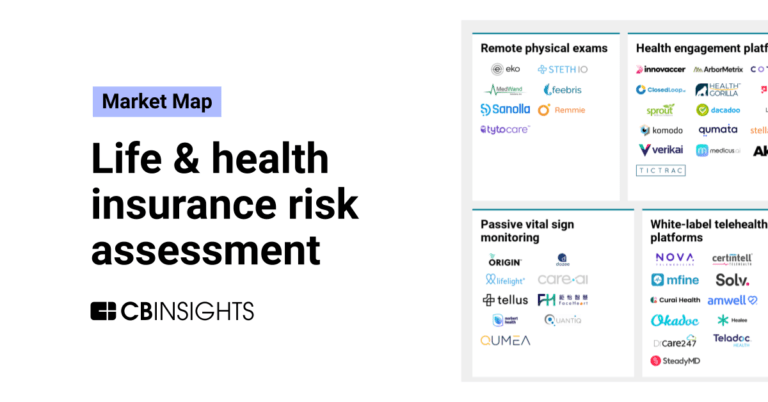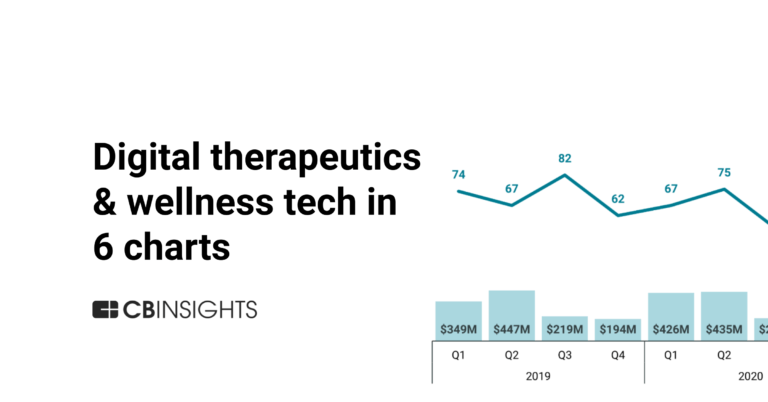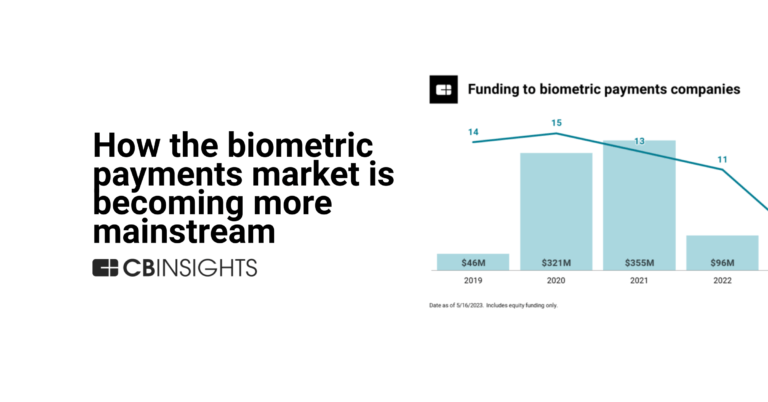
Oura
Founded Year
2013Stage
Series D | AliveTotal Raised
$444.63MValuation
$0000Last Raised
$200M | 5 mos agoRevenue
$0000Mosaic Score The Mosaic Score is an algorithm that measures the overall financial health and market potential of private companies.
+45 points in the past 30 days
About Oura
Oura focuses on health tracking wearables in the wellness technology sector. Its main offering is the Oura Ring, a smart ring that collects biometric data to provide insights into sleep, fitness, and stress. It was founded in 2013 and is based in Oulu, Finland.
Loading...
Oura's Product Videos
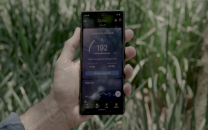
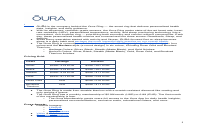
ESPs containing Oura
The ESP matrix leverages data and analyst insight to identify and rank leading companies in a given technology landscape.
The digital biomarker monitoring market provides technology solutions that capture and analyze digital health data to assess and predict health outcomes. Utilizing devices and software that integrate into patients’ daily lives, these solutions monitor various physiological and behavioral indicators that serve as biomarkers for health conditions. This market includes mobile apps that track activity…
Oura named as Leader among 15 other companies, including Whoop, Huma, and AliveCor.
Oura's Products & Differentiators
Oura Ring
The smart ring that delivers personalized health data, insights, and daily guidance. With its advanced, research-grade sensors, Oura Ring packs state-of-the-art heart rate, heart rate variability (HRV), personalized temperature, activity, and sleep monitoring technology into a convenient, non-invasive ring — prioritizing both accuracy and comfort without compromise. Each day, these personalized health metrics are summarized into three scores: Readiness, Sleep, and Activity. Oura Ring is made from durable titanium with a scratch-resistant diamond-like coating and only weighs 4 grams. Oura has a monthly membership of $5.99/month (USD), which grants users full access to the Oura App for daily health insights, personalized recommendations, exclusive audio, educational videos, and more.
Loading...
Research containing Oura
Get data-driven expert analysis from the CB Insights Intelligence Unit.
CB Insights Intelligence Analysts have mentioned Oura in 12 CB Insights research briefs, most recently on Aug 21, 2024.

Aug 21, 2024
The clinical trials tech market map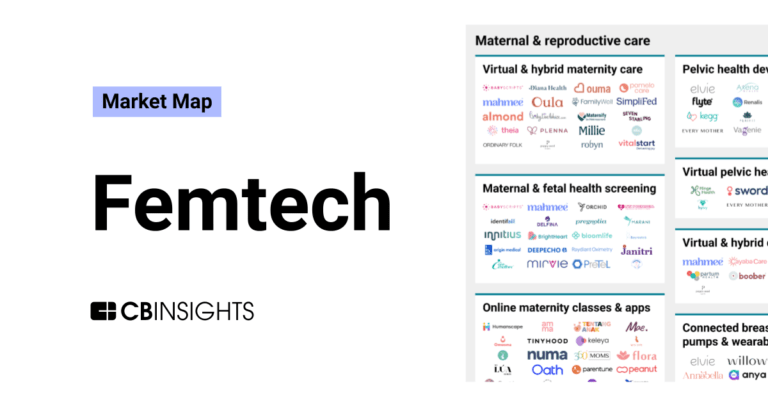
Mar 28, 2024
The femtech market map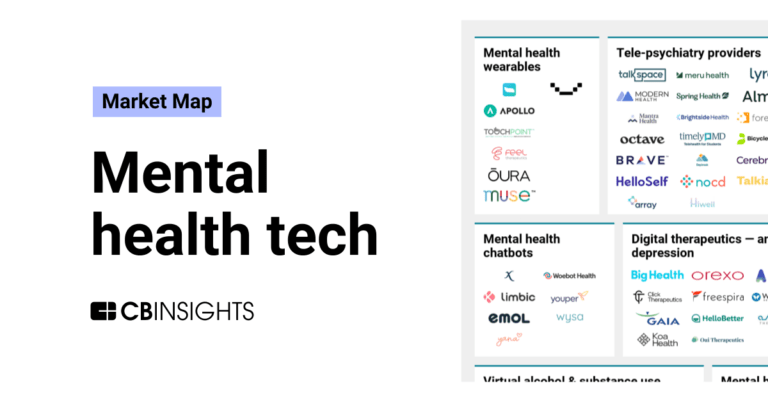
Sep 13, 2023
The mental health tech market map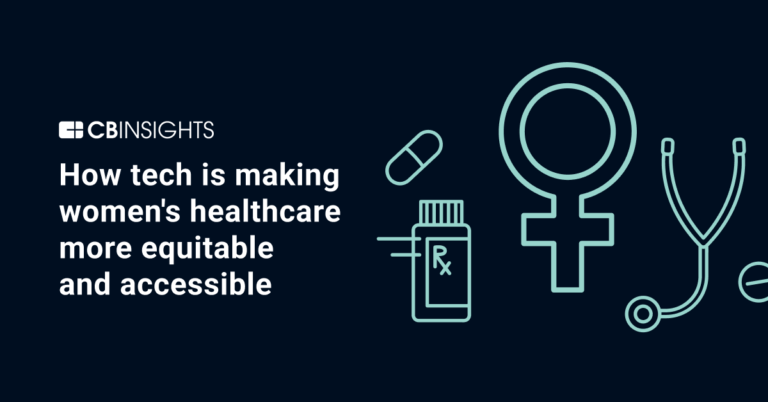
Nov 11, 2022 report
How tech is making women’s healthcare more equitable and accessibleExpert Collections containing Oura
Expert Collections are analyst-curated lists that highlight the companies you need to know in the most important technology spaces.
Oura is included in 9 Expert Collections, including Direct-To-Consumer Brands (Non-Food).
Direct-To-Consumer Brands (Non-Food)
1,192 items
Startups selling their own branded products directly to consumers through owned e-commerce channels, rather than relying on department stores or big online marketplaces.
Unicorns- Billion Dollar Startups
1,270 items
Luxury Tech
419 items
Tech-enabled companies launching new luxury brands, as well as startups providing tech solutions to the luxury industry, including e-commerce tools, marketing, and more. While these companies may not exclusively target luxury companies, they have notable luxury partners.
Wellness Tech
1,370 items
We define wellness tech as companies developing technology to help consumers improve their physical, mental, and social well-being. Companies in this collection play across a wide range of categories, including food and beverage, fitness, personal care, and corporate wellness.
Digital Health 50
300 items
The most promising digital health startups transforming the healthcare industry
Smart Home & Consumer Electronics
1,234 items
This Collection includes companies developing smart home devices, wearables, home electronics, and other consumer electronics.
Oura Patents
Oura has filed 195 patents.
The 3 most popular patent topics include:
- wearable devices
- wearable computers
- smartwatches

Application Date | Grant Date | Title | Related Topics | Status |
|---|---|---|---|---|
6/24/2021 | 4/8/2025 | Wearable devices, Classification algorithms, Units of length, Statistical classification, Wearable computers | Grant |
Application Date | 6/24/2021 |
|---|---|
Grant Date | 4/8/2025 |
Title | |
Related Topics | Wearable devices, Classification algorithms, Units of length, Statistical classification, Wearable computers |
Status | Grant |
Latest Oura News
Apr 10, 2025
Researchers conducted a comprehensive analysis of sleep during 60,000 trips of over 100km and utilised 1.5 million nights of de-identified data from the Oura Ring to provide the first large-scale, real-world study of jet lag recovery to date. Previous studies on jet lag have either been conducted under controlled laboratory conditions or involved specific groups like athletes or military personnel, whose characteristics may not reflect those of the general traveling public. We've known for some time that jet lag is a challenge for travellers, but this study provides data-driven evidence of just how persistent the impacts are, particularly when it comes to adjusting sleep timing to a new time zone." Adrian Willoughby, lead researcher of the study, Senior Research Fellow at NUS Medicine Jet lag is a known cause of sleep disturbance during travel, but it is not the only factor. Travellers often wake up early to catch flights, shortening sleep the night before departure. While flights later in the day tend to have less impact on sleep the night before traveling, sleeping on overnight flights poses challenges, often leading to impaired performance and increased daytime sleepiness. This restricted sleep typically results in early bedtimes and extended recovery sleep the next night. However, crossing time zones complicates this recovery by disrupting the ability to fall asleep at the appropriate local time. The study found that sleep duration typically returns to baseline within approximately two days, but changes in sleep timing and structure (for example, more night time awakenings) can take more than a week, with eastward travel and crossing multiple time zones amplifying the disruption. Additional findings include: • Sleep duration generally recovers quickly, aligning within 15 minutes of habitual sleep duration within the first few days post-travel. Related Stories • Jet lag is more severe following eastward travel, especially for shorter trips (up to three time zones). For longer journeys, the disruption from habitual sleep patterns is similar regardless of direction, with sleep occurring 60-70 minutes earlier or later than usual. In some cases, restoring normal sleep timing and structure can take more than a week. • There were minimal differences between men and women in travel-related sleep disruption. However, older travellers experienced slightly less impact, with a 20-year-old experiencing a 15-minute greater reduction in sleep compared to a 60-year-old over the initial post-travel days. A notable feature of this study was its measurement of habitual sleep prior to travel over an extended period as well as a long post-travel follow up. "Wearable devices like Oura Ring that track health behaviours over time, are opening new doors for health data collection on a large scale. Travellers looking at this dataset can determine how much better or worse off they are than the population average given their existing sleep habits, trip parameters, and number of days after travel. People like to know where they stand compared to others and this dataset provides a solid basis for assessing that." Professor Michael Chee, Director of the Centre for Sleep and Cognition at NUS Medicine added. Future work will seek to assess lifestyle factors contributing to slower or faster recovery of sleep disruption and whether efforts to time light exposure and melatonin ingestion help in real world settings. The study titled 'Insights about Travel-Related Sleep Disruption from 1.5 Million Nights of Data' was published in SLEEP on 24 March 2025. Source:
Oura Frequently Asked Questions (FAQ)
When was Oura founded?
Oura was founded in 2013.
Where is Oura's headquarters?
Oura's headquarters is located at Elektroniikkatie 10, Oulu.
What is Oura's latest funding round?
Oura's latest funding round is Series D.
How much did Oura raise?
Oura raised a total of $444.63M.
Who are the investors of Oura?
Investors of Oura include Fidelity Investments, Dexcom Ventures, Siena Secondary Fund, Marc Benioff, Forerunner Ventures and 39 more.
Who are Oura's competitors?
Competitors of Oura include Dozee, Circadian Health, NYX Technologies, Whoop, Ultrahuman and 7 more.
What products does Oura offer?
Oura's products include Oura Ring .
Loading...
Compare Oura to Competitors

Whoop produces wearable health technology within the fitness and health sectors. It offers a fitness tracker that monitors sleep, heart rate variability, resting heart rate, and physical strain. Whoop was formerly known as Bobo Analytics. It was founded in 2012 and is based in Boston, Massachusetts.

Withings develops connected health technology in the health and wellness sector. The company offers product range includes smart scales, hybrid smartwatches, blood pressure monitors, and sleep analysis tools, which provide users with health measurements and insights. Its products are targeted at individuals who wish to monitor their health at home. The company was founded in 2008 and is based in Issy-les-Moulineaux, France.
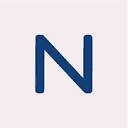
NYX Technologies serves as a neurotechnology company that focuses on sleep and wellness. The company offers a wearable headset designed for sleep quality using adaptive and science-backed methods. It primarily serves the health and wellness technology sector. It was founded in 2016 and is based in Haifa, Israel.

Dozee specializes in contactless remote patient monitoring within the healthcare sector, utilizing AI and ballistocardiography technology. The company offers monitoring of vital signs such as heart rate, respiratory rate, blood pressure, blood oxygen saturation, and skin temperature, as well as sleep quality assessment. Dozee provides healthcare professionals with alerts and health insights. It was founded in 2015 and is based in Bangalore, India.

Empatica is an affective computing company that specializes in medical quality sensing and human data analytics within the health monitoring and research sector. The company offers FDA-cleared wearable devices and a health monitoring platform that provides accurate, continuous health insights for researchers and clinicians, collected in real-world settings. Empatica's technology is utilized by pharmaceutical companies to monitor treatment impacts and develop novel digital biomarkers. Empatica was formerly known as Physiio International,Inc.. It was founded in 2011 and is based in Cambridge, Massachusetts.
Koneksa is a healthcare technology company that develops and implements digital biomarkers for clinical trials across various therapeutic areas. The company provides services for remote data collection using digital health technology and therapeutic expertise to offer data access through a cloud-based SaaS platform. Koneksa serves the pharmaceutical and biotechnology sectors, assisting in drug development and market strategy. It was founded in 2015 and is based in New York, New York.
Loading...

